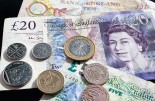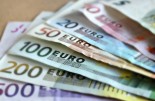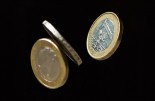Monex: Verbeterde marktstemming drukt op dollar
Monex: Verbeterde marktstemming drukt op dollar

Hieronder volgt een commentaar in het Engels van Ranko Berich, Head of Research bij Monex Europe op de Amerikaanse dollar, euro en het Britse pond.
USD
Yesterday’s tentative dollar weakness accelerated into a broad retreat overnight as US equity markets rallied and investor risk appetite seemed to almost turn bullish, despite the ongoing global coronavirus pandemic. AUD, NOK, and NZD are the biggest winners among the G10 currencies. The S&P 500 closed more than 7% higher yesterday amid a global rally in equities, with the good mood continuing in Asia overnight. After concluding a meeting with US oil producers on Friday without any sign that a production cut had been seriously discussed, Donald Trump suggested a US production cut remained possible. The US President said he thought that production cuts “are automatic if you are a believer in free markets”, and that he would make a decision if asked by OPEC.
EUR
With the mood improving in global markets, the euro enjoyed another leg of strength against the dollar amid falling coronavirus cases in the eurozone. Despite the slowdown in cases, increases in Germany’s death toll are still significant, which may be concerning given Germany’s draft action plan to scale back their national lockdown. The Interior Ministry reportedly stated that public life may gradually resume while still keeping the average number of people infected by a single individual below one. In terms of data, German industrial production beat expectations this morning and increased 0.3% month-on-month compared to the expected 0.8% decrease. On a year-on-year basis, output decreased 1.2%, overshooting expectations of a 3.0% decrease and the prior reading of a 1.3% decrease. As the data period covers February, the reading may be interpreted as a slight improvement of German manufacturing output ahead of the virus shock, but because the lion’s share of the shock will be included in the March figures when the lockdown was imposed, any excitement about the current data would be misguided. Today is a big day for the EU finance ministers who will meet at 15:00 to discuss policy responses aimed at easing the outbreak’s economic impact. So far, the European Union has raised a €37bn fund to support the health system, small and medium-sized companies and the labour market. Among the currently evaluated measures are an unemployment insurance scheme, expansion of European Investment Bank loans to SMEs, European Stabilisation Mechanism credit lines, and so-called “coronabonds” that would allow debt liability to be shared among all EU countries and thus support countries with high debt premiums. The latter two options have caused a divide among the countries that have opened old wounds from the global financial crisis. Not only the size and breadth of today’s decision will be key for judging if the coordinated response will be effective in mitigating the economic impact caused by the virus outbreak, but the ease and extent to which the ministers will reach a consensus will send a message about the fate of the euro and the harmony of the European Union as a whole. For now, the euro is rallying strongly into this event, but such a rally could be unfounded should communication channels breakdown between ministers.
GBP
Sterling showed some resilience to the news that Boris Johnson had been taken to hospital on Sunday, and recovered over the course of yesterday, only to be put back on the defensive by the news that the Prime Minister had been admitted to intensive care. The secretary of state Dominic Raab will assume Johnson’s responsibilities as required. Details on the Prime Minister’s condition and exactly which duties will be assumed by Raab were scarce, although it was made clear that the admission to intensive care was as a precaution, and that Johnson had not been ventilated. Yesterday’s data included the news that car sales had plunged in March by 44% compared to a year earlier, consistent with other data showing a rapid and large decline in consumption.










